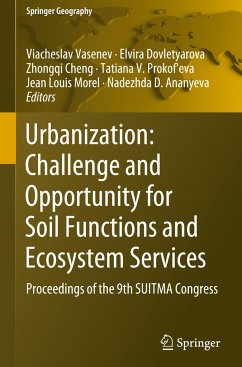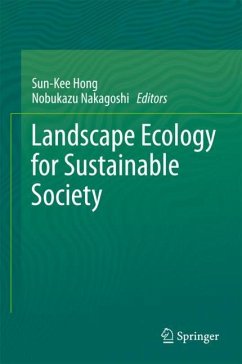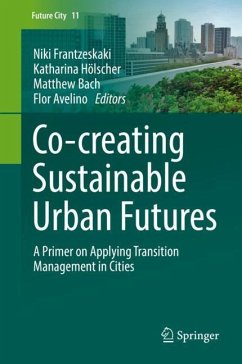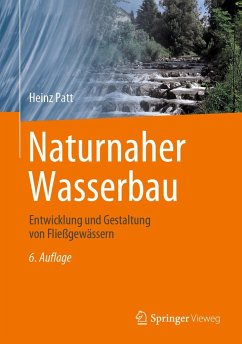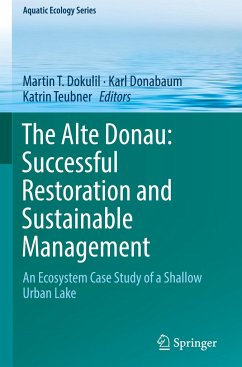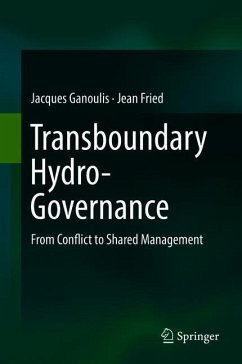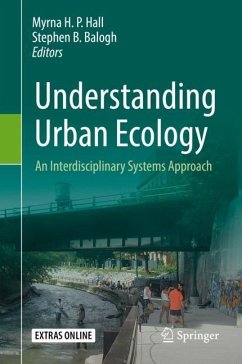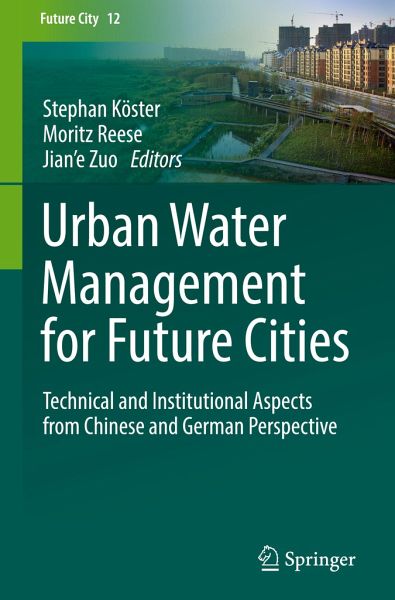
Gebundenes Buch
Urban Water Management for Future Cities
Technical and Institutional Aspects from Chinese and German Perspective
Herausgegeben: Köster, Stephan; Reese, Moritz; Zuo, Jian'e
Versandkostenfrei!
Versandfertig in 6-10 Tagen
Weitere Ausgaben:

PAYBACK Punkte
57 °P sammeln!




This book features expert contributions on key sustainability aspects of urban water management in Chinese agglomerations. Both technical and institutional pathways to sustainable urban water management are developed on the basis of a broad, interdisciplinary problem analysis.
Stephan Köster, Prof. Dr. ing., is head of the Institute of Sanitary Engineering and Waste Management at Leibniz Universität Hannover (Germany). He has held the Chair of Urban Water Management since April 2016. Köster studied Civil Engineering at RWTH Aachen University. Following his studies, he worked for several years in an engineering company, primarily in projects of international cooperation for sustainable development. He returned to RWTH Aachen University in 2000 and received his doctorate in 2004. In the year 2011 Köster joined the Hamburg University of Technology as professor, after seven years as head engineer of the Institute of Sanitary Engineering of RWTH Aachen University. Moritz Reese, Dr. iur., is senior researcher at the Department for Enviornmental & Planning Law of the Helmholtz Center for Environmental Research (UFZ) in Leipzig, Germany. He is also Co-Speaker of the Governance Division of the Center for Advanced Water Research (CAWR), chairman of the European Environmental Law Forum (EELF), editor in chief of the Journal for European Environmental & Planning Law (JEEPL), member of the editorial board of the German Journal for Environmental Law (Zeitschrift für Umweltrecht) and German rapporteur to the European Water Law Network. Since joining the Helmholtz Centre in 2008, Dr. Reese has focussed on research and consultancy in the fields of water governance, urban development and climate adaptation. Jiane Zuo, Ph.D, is a professor and former vice-dean of the School of Environment at Tsinghua University. His research focuses on anaerobic biotechnology for organic wastewater and solid waste treatment and biogas recovery. Another important field of research is rain water collection and pollution control including sewer system evaluation and maintenance. Dr. Zuo got his bachelor degree from the Department of Environmental Engineering, Tsinghua University in 1991, got his master degree and Ph D degree from the Department of Environmental Science and Engineering, Tsinghua University in 1996. He became a teacher at Tsinghua in 1995. In 2004 he was appointed full professor at the Tsinghua University. For years, he has been leading many research projects, including the Mega Water Project in Tongzhou, which serves the demonstration implementation of the Sponge-City concept in Beijing.
Produktdetails
- Future City 12
- Verlag: Springer / Springer International Publishing / Springer, Berlin
- Artikelnr. des Verlages: 978-3-030-01487-2
- 1st edition 2019
- Seitenzahl: 520
- Erscheinungstermin: 31. Januar 2019
- Englisch
- Abmessung: 241mm x 160mm x 32mm
- Gewicht: 990g
- ISBN-13: 9783030014872
- ISBN-10: 3030014878
- Artikelnr.: 53643302
Herstellerkennzeichnung
Springer-Verlag GmbH
Tiergartenstr. 17
69121 Heidelberg
ProductSafety@springernature.com
Für dieses Produkt wurde noch keine Bewertung abgegeben. Wir würden uns sehr freuen, wenn du die erste Bewertung schreibst!
Eine Bewertung schreiben
Eine Bewertung schreiben
Andere Kunden interessierten sich für


